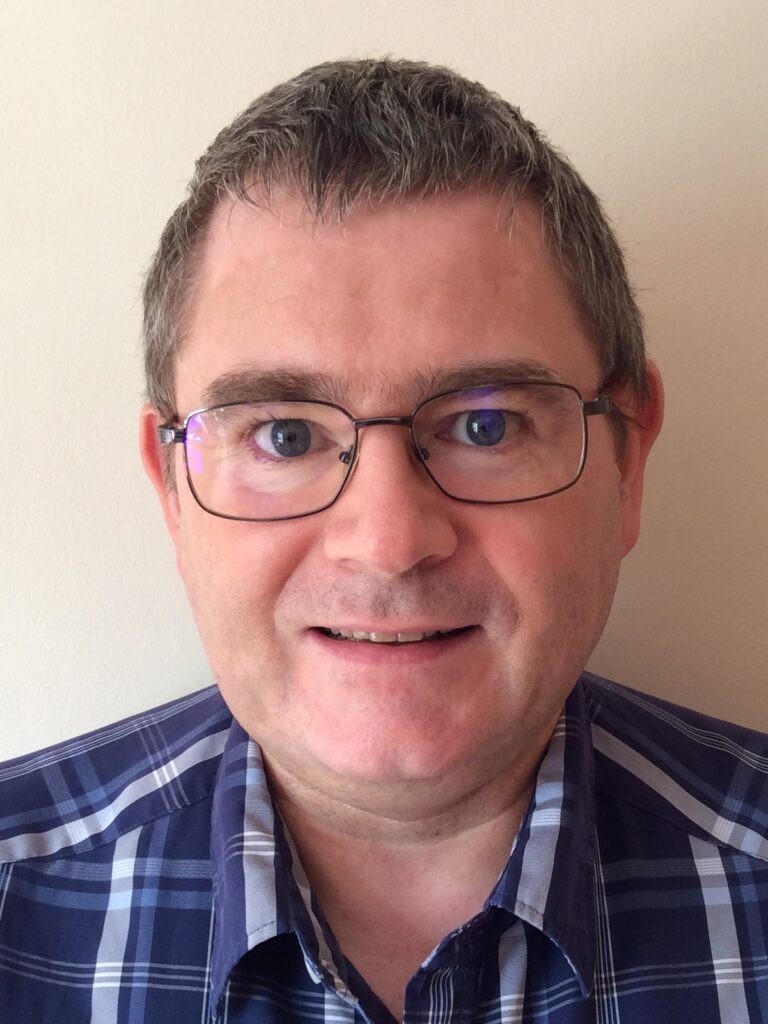
A recent visitor to Aotearoa, Dr Stuart Farmer is an experienced Physics teacher who is now the Education and Workforce Manager (Scotland) at the Institute of Physics and a fellow at Stirling University. With over 30 years of teaching experience, a PhD in education, and extensive involvement in teacher professional learning and a long history with The Association for Science Educators (Scotland’s equivalent of NZASE), Stuart has both academic and practical experience of curriculum change.
Scotland and New Zealand have much in common, similar populations, geographically dispersed communities and a comparable number of schools. A visit to New Zealand was a add on to visiting his daughters in Australia. Stuart wanted to make the most of all the carbon dioxide created by his trip by learning more about education systems in Australasia. When Stuart spoke to Physics teachers in Wellington, NZASE executive member Doug Walker invited him to share some of his experiences and evidence informed reflections on Scotland’s curriculum reform process with NZASE members.
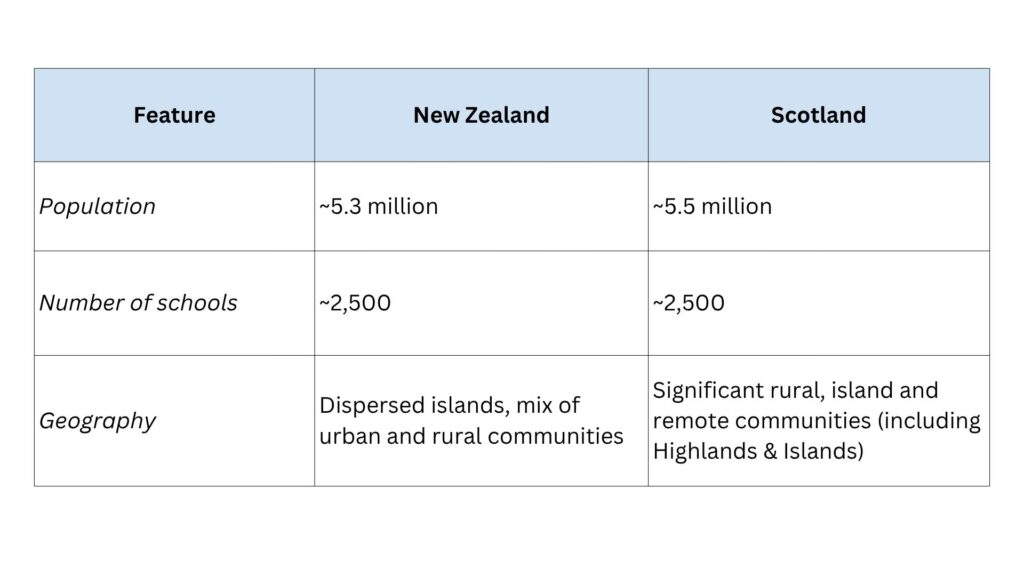
What are Stuart’s thoughts about curriculum development?
Stuart sees the curriculum sitting in two main camps: knowledge-based and competency-based. A competency-based curriculum argues that skills can be developed from any knowledge base, while knowledge-based curriculum has a clear progression of knowledge as it builds through the years of children’s schooling and has coherence across those years and that subsequently skills can be developed upon this knowledge.
International comparisons
Stuart argues that there is a clear link between knowledge focused curriculum and PISA and TIMSS success. Evidence for this correlation includes Finland’s declining PISA results as its curriculum moved towards a competency based, interdisciplinary approach, and Portugal’s success in mathematics can be mapped directly onto changes in focus of the maths curriculum over time. He also shared how England and Scotland’s PISA scores have essentially swapped, as Scotland’s curricula moved towards competency-based (2010) and England’s towards knowledge-based (2014).
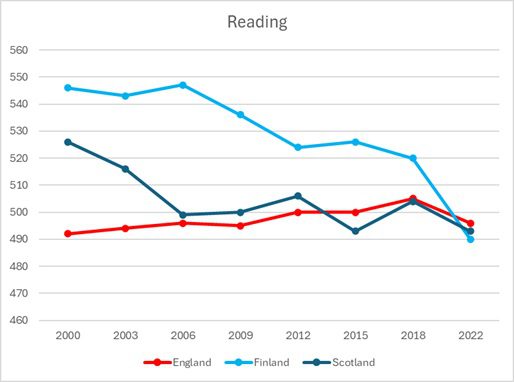
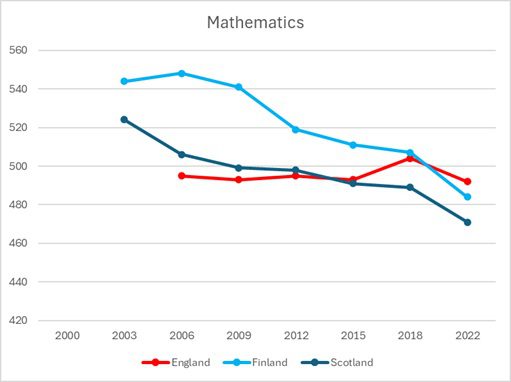
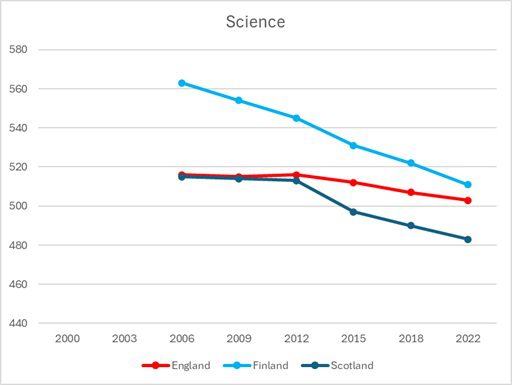
Stuart acknowledges that PISA and TIMSS are only one way of defining success, and nothing is perfect, but he thinks it is a pretty good one for measuring the success of an education system. He encourages educators to take the time to look at the questions in PISA assessments. He asserts that the kinds of questions in PISA are well written, do not just assess rote learning, and actually assess how young people apply their skills, analyse data, and use higher-order thinking skills. He sees PISA and TIMSS as only one aspect of a triad of evidence for a curriculum founded on knowledge first.
Cognitive Science
As we learn more from cognitive science we can see that it supports a knowledge based curriculum that supports students building a schema, says Stuart. “The whole purpose of school,” he argues,” is to introduce the learners to knowledge and information that they cannot gain elsewhere in everyday life.” He describes this as the development of biologically secondary knowledge, knowledge that requires explicit teaching and not left for students to discover. “they won’t just discover subjects like maths and physics” he adds.
Equity
His final point is one of equity. A more structured knowledge-based curriculum, rather than a curriculum with too much focus on things that directly relate to the lives and experiences of young people, can disadvantage those learners whose backgrounds are relatively deprived and therefore might not be exposed to wide learning opportunities.
Obviously, the debates and arguments then turn to whose knowledge and whose culture is being valued in the curriculum. He recognises that for New Zealand this is a much bigger discussion than for Scotland.
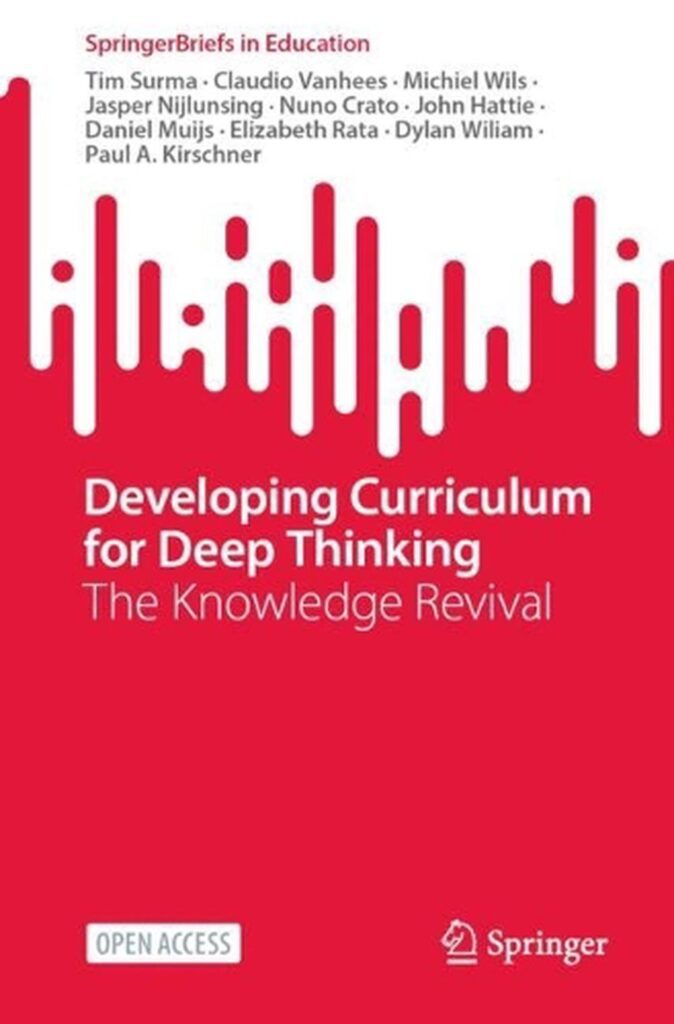
Further reading
Stuart recommends the book Developing Curriculum for Deep Thinking- the knowledge revival (available open source). He suggests it is a potted summary of the benefits and justification of a knowledge-rich curriculum and if you are time poor (as most teachers are) then reading the executive summary will give you a clear understanding of the key arguments.
Scottish curriculum review process
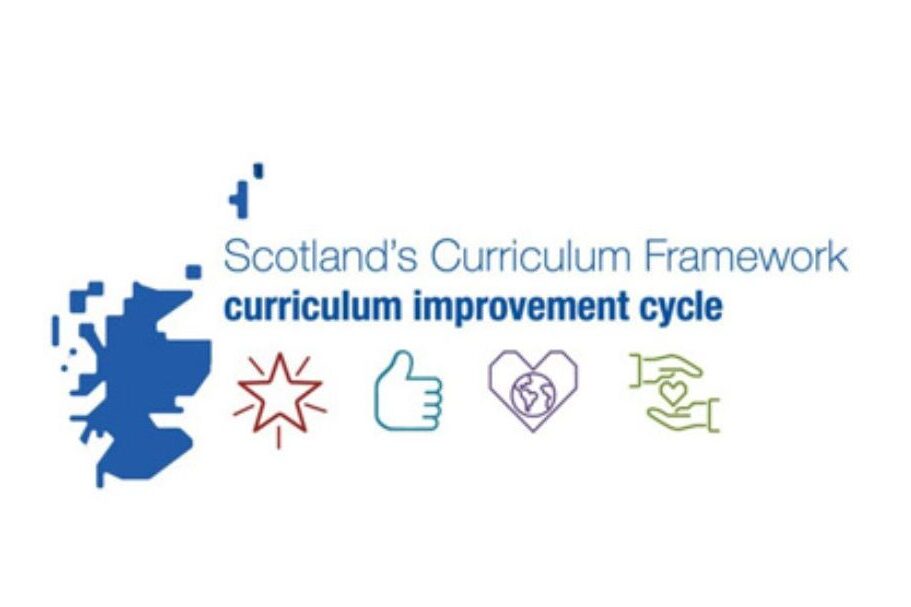
The Scottish curriculum is currently under review. An independent external review has been completed by the OECD and the process is now moving into action. Last year, large subject groups were formed (118 in science), comprising around 70% teachers. A smaller core group of 36 includes representatives from early years teachers through to people like Stuart, representing Higher Education and other relevant organisations. Importantly, they are encouraged to speak openly and widely with the profession. This is quite a departure from previous development processes, which have been carried out in secrecy until drafts were produced for consultation.
The current Scottish curriculum review process
There are trade-offs to having more consultations, Stuart admits. These include the speed at which the process can take place, not everyone involved is afforded the time to come to grips with key documents and frameworks, and an opportunity to think deeply about what big ideas should be included in the curriculum for the sciences. One key difference from New Zealand, Stuart notes, between Scotland’s current process and New Zealand is that the process in Scotland is being kept at arm’s length from the government; the ministry is not directly responsible for the process.
Final thoughts
Stuart’s final message is clear: for any curriculum to be successful, the implementation and process need to be supported. Teachers need time for professional development, to understand the rationale behind the curriculum and importantly, time for teachers to collaborate in the curriculum’s development in their local context.
“It doesn’t matter how good the curriculum is,” he says, “without adequate resourcing, it is likely to fail to deliver on the intended aims.”
Links
Learn more about cognitive load and primary and secondary knowledge here.
Access to Developing Curriculum for Deep Thinking- the knowledge revival (available open source).
Stuart Physics – Stuart Farmers musings on education and physics stuff
Scotlands Curriculum Improvement cycle

